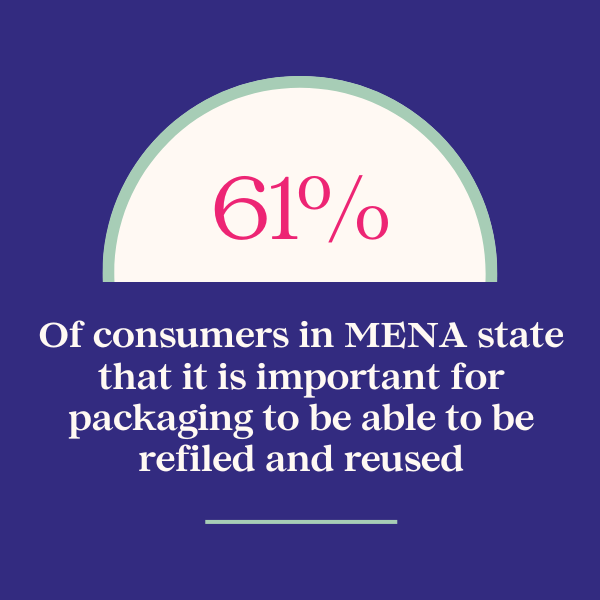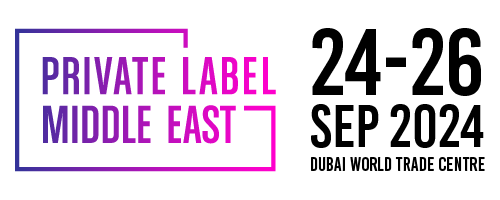In recent years, more attention has been given to the packaging of food and drink products. This is due to rising concerns about the environment and safety. These concerns have been escalated due to the impact of COVID-19 but are issues that already existed and will continue. The pandemic highlighted for many consumers areas that needed to be addressed. Consumers in the Middle East and Africa are looking to brands to address concerns regarding packaging and reassure them about issues such as sustainability and safety.
Sustainability and Recycling

One of the main motivations for consumers in the Middle East and Africa to address packaging is concerns about the state of the planet.
FMCG Gurus consumer insights found that 75% of consumers in the Middle East and Africa state that their reason for recycling is due to concerns about climate change. Consumers are researching the sustainability of the products they consume, turning to products that do not negatively impact the environment. This extends to the packaging of these products.
When determining whether a product’s packaging is environmentally friendly or not, 69% of consumers in the Middle East and Africa believe that carbon emission of the packaging being optimized/minimized is important. However, as there have previously been high-profile cases of greenwashing, consumers in the Middle East and Africa can be skeptical about sustainability claims made by brands. Therefore, it is important that brands can provide credentials that are evidence-led to authenticate these claims. As consumers turn to brands and products that reflect their views it is important that consumers can trust brands to be transparent and authentic about their impact on the environment.
Another way that consumers are trying to improve the sustainability of the products they consume is by ensuring that packaging can be recycled. Due to daily consumption, food and drink products are the most regularly recycled items. However, there are barriers that can prevent consumers from recycling packaging. Many consumers in the Middle East and Africa believe that the recycling information on packaging is too complicated to understand. FMCG Gurus consumer insights found that 53% of consumers want information about recycling on packaging to be simpler and easier to understand. Simple and clear information can encourage consumers to recycle packaging on a more frequent basis.
Another way that consumers are trying to improve the sustainability of the products they consume is by ensuring that packaging can be recycled. Due to daily consumption, food and drink products are the most regularly recycled items. However, there are barriers that can prevent consumers from recycling packaging.
Many consumers in the Middle East and Africa believe that the recycling information on packaging is too complicated to understand.
FMCG Gurus consumer insights found that 53% of consumers want information about recycling on packaging to be simpler and easier to understand.
Simple and clear information can encourage consumers to recycle packaging on a more frequent basis.
Another way that consumers are approaching recycling is through reusing packaging. 61% of consumers in the Middle East and Africa state that it is important for packaging to be able to be refilled and reused. Consumers look for packaging that can be upcycled and repurposed instead of being thrown away. This is not only sustainable but can also help consumers to save money. Brands that offer discounts when reusing packaging can also appeal to consumers.

Safety
Another concern that consumers have is the safety of packaging. COVID-19 highlighted for many consumers in the Middle East and Africa that packaging safety could be improved. As consumers look to reduce their vulnerability to disease and illness, they want packaging that can prevent products from being exposed to bacteria and germs. FMCG Gurus insights found that 74% of consumers believe that the main purpose of packaging is to ensure grocery products are as fresh and safe as possible.
Consumers also want to be reassured that packaging is free from chemicals and will not contaminate products. 73% of consumers in the Middle East and Africa say that chemical-free packaging claims on packaging is important. These claims need to be evidence-led and scientific-based to help overcome reservations consumers may have about plastic packaging. Chemicals are associated with being harmful to both the environment and health. This will drive demand for packaging materials that are deemed natural such as plant-based materials.Design and Labelling
Although safety and sustainability are important to consumers when addressing packaging, it is important that design and labeling are not overlooked. Visually, the color green in packaging can help products appear more environmentally friendly and authentic. Brands can use green packaging to help supplement sustainability and natural claims.
Packaging design should ensure that packaging is hassle-free and simple to open. This is especially useful for older consumers who may struggle with opening packaging. FMCG Gurus consumer insights found that 43% of consumers in the Middle East and Africa report that they have difficulty opening packaging most or all of the time.
As consumers look for products that are sustainable, free from chemicals, and safe it is important that brands are transparent and use simple labeling so consumers can make informed decisions when purchasing products.
Written by: Emily Smith, Content and Editorial Executive at FMCG Gurus
This exclusive Private Label & Licensing ME article is based on FMCG Gurus: Packaging Survey Series 2021.
For more information, please contact: info@fmcggurus.com
-(1).png)

)
.png/fit-in/500x500/filters:no_upscale())
)
)
)
)
)
)
)
)
)
)
)
)
.png/fit-in/500x500/filters:no_upscale())
)
)
)
)
)
)
)
)
)